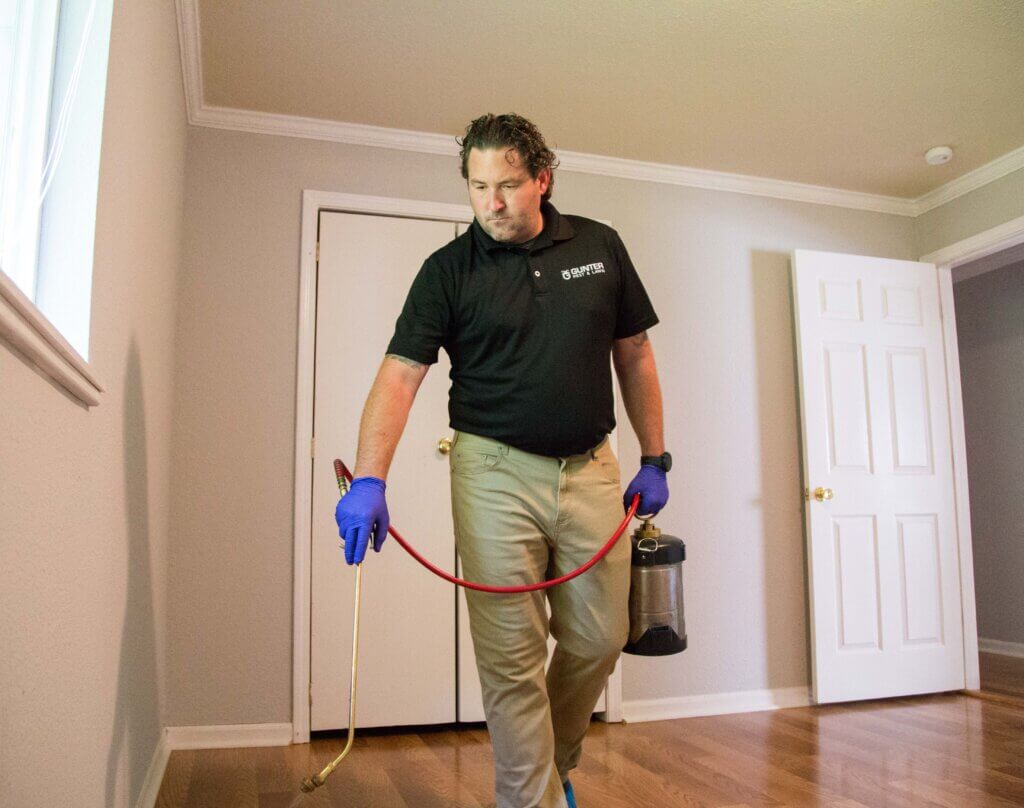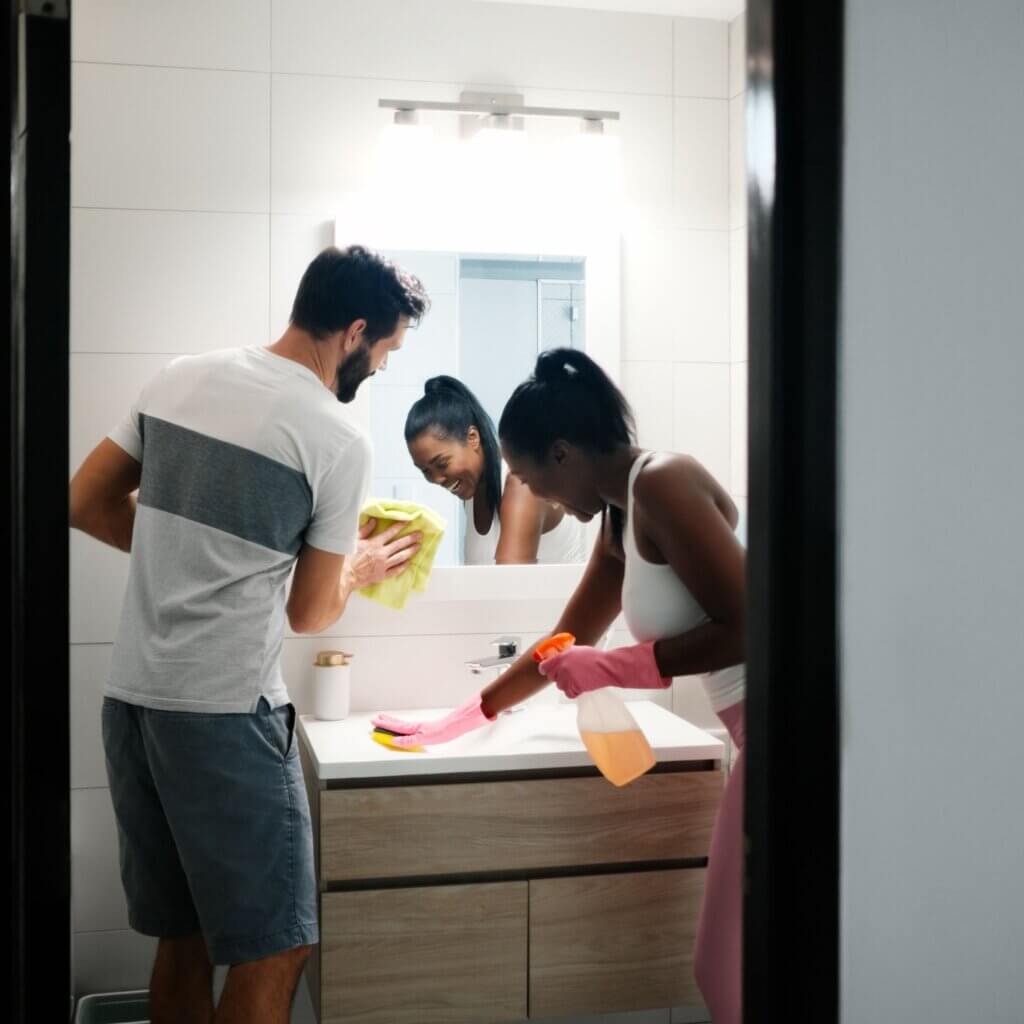Pest infestation is a substantial problem that can cause discomfort, health issues, and property damage. The dispute over responsibility for pest control between landlords and tenants in Kansas City is an enduring one. This article seeks to delve deeper into this issue, providing insights into the responsibilities of both parties to clear the air of uncertainty. So… Who is responsible for pest control? The landlords or tenants?
Understanding who holds responsibility for pest control is not only crucial for maintaining a harmonious landlord-tenant relationship but also essential for ensuring the health and safety of tenants and the upkeep of the rental apartment. The differing roles in pest control responsibilities often intersect, with both parties holding specific duties to prevent and address pest infestations. As we delve into this issue, we aim to provide clarity and help both landlords and tenants navigate this aspect of property management and residency, ensuring the efficient and effective handling of pest problems.

Landlords’ Responsibilities
Before discussing the specific roles and responsibilities of landlords in managing pest control, it’s important to understand the broader context within which these responsibilities lie. Landlords, as owners of rental properties, inherently hold the obligation to ensure the safety, habitability, and maintenance of their properties. This overarching duty encompasses the management of pest control, as a pest-free environment is a fundamental aspect of habitable and comfortable living space.
A landlord’s active involvement in pest control not only contributes to maintaining the property’s value and appeal but also underlines their commitment to the well-being and satisfaction of their tenants. With this understanding, let’s explore the particular responsibilities of landlords concerning pest control.
Legal Obligation
- Providing A Habitability Guarantee
Landlords are legally obligated to offer a habitable environment for tenants. This encompasses ensuring that the property is devoid of pests before the tenant moves in. Any structural issues that might attract pests, like holes in the walls or trash disposal issues, must be addressed promptly by the landlord.
- Addressing Pest Problems
Generally, landlords should handle pest control before a tenant moves in and continue managing significant pest infestations unless caused by the tenant’s behavior. A quick and effective response to complaints regarding pest issues is very important to maintaining the property’s habitability standard.
Maintenance
Ensuring the regular maintenance of the property is part of a landlord’s duty. This maintenance includes timely trash disposal and ensuring the cleanliness of common areas. Additionally, landlords should engage in preventive pest control measures, such as regular inspections and treatments to ensure the property remains pest-free.

Tenants’ Responsibilities
As we transition from the obligations of landlords, it is equally important to understand the responsibilities that tenants hold concerning pest control. While landlords play a significant role in maintaining the structural integrity and overall habitability of a property, tenants hold the key to ensuring the day-to-day environment remains uninviting to pests.
The responsibilities of tenants extend beyond occupancy, encompassing various aspects of maintenance and cleanliness within their living space. Their proactive involvement in preventing pest infestations is not only beneficial for their own well-being but also fundamental in safeguarding the property as a whole.
Maintaining Cleanliness
- Preventing Infestations
Tenants are primarily responsible for keeping their living space clean and hygienic, thus avoiding attracting pests. Actions such as regular garbage disposal, cleaning leftovers and food crumbs, and managing moisture levels in the property are essential to preventing pest infestations.
- Prompt Reporting
Tenants must report any pest issue to the landlord immediately, ensuring that timely action can be taken to resolve the problem.
Cooperation
Allowing the landlord or pest control professionals access to the property for inspection and treatment is a tenant’s responsibility. Additionally, following any guidelines or instructions given for post-treatment care or preventive measures is essential for maintaining a pest-free environment.
Shared Responsibility
In many scenarios, pest control is a mutual responsibility:
- Landlords must ensure initial pest-free conditions, manage structural or communal issues leading to pest problems, and timely and effectively handle reported pest infestations unless clearly caused by tenant negligence.
- Tenants must consistently maintain cleanliness and hygiene to avoid attracting pests and communicate swiftly regarding any pest issues, while also implementing control and preventive measures.
Addressing Disputes
Clear, written communication is essential for addressing disputes regarding pest control responsibilities. Both parties should keep records of all communications, and tenants should promptly document and report pest issues.
Additionally, familiarity with local laws and regulations will also help in resolving disputes effectively and ensuring that both parties fulfill their responsibilities.
Conclusion
In essence, the responsibility for pest control is a collective effort from both landlords and tenants. Proper understanding, open communication, and a cooperative approach are fundamental to handling pest issues efficiently. Being knowledgeable about local laws and regulations further aids in this process, helping to clearly delegate responsibilities and ensure the rental is a healthy, comfortable living environment.
Additionally, fostering a transparent and responsive relationship between landlords and tenants is important for all aspects of a rental agreement, including smooth and effective pest control. A proactive approach, including regular inspections, prompt reporting, and adherence to preventive measures, can significantly reduce the likelihood and extent of pest infestations. Ensuring that both parties are aware of and committed to their roles in pest control will contribute to a more harmonious living situation, minimize disputes, and promote the well-being and satisfaction of all involved parties.
We hope that we have answered your questions about “Who Is Responsible For Pest Control”.
Be Sure To Check Out Our Services:
Termites — Commercial Pest Control — Residential Pest Control — Bed Bugs









